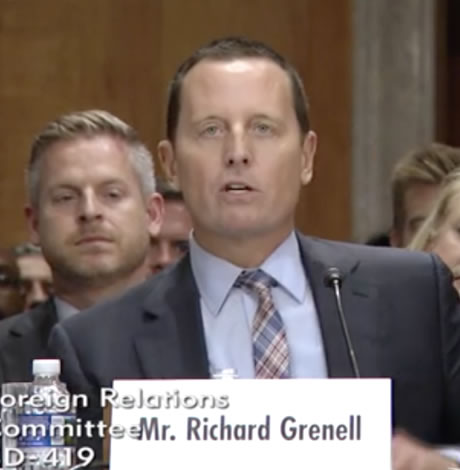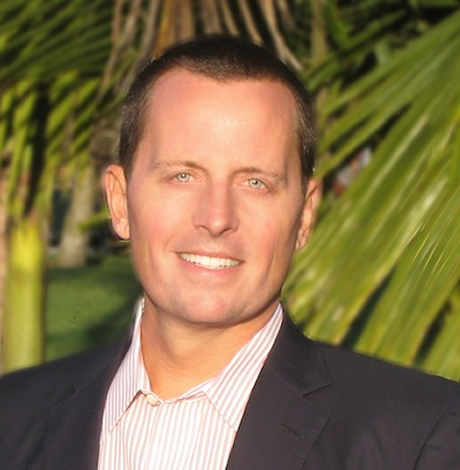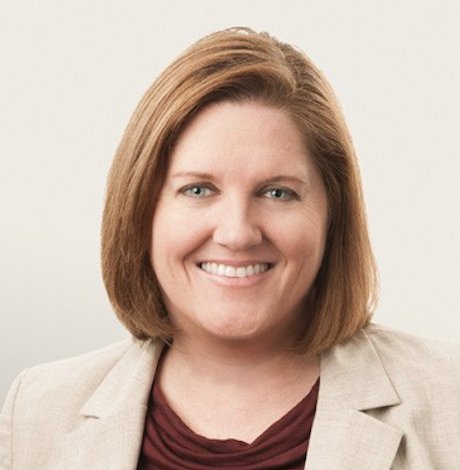News
Obama tries again: 2nd gay black man named to fed’l bench
Gayles named for seat on federal bench in Florida
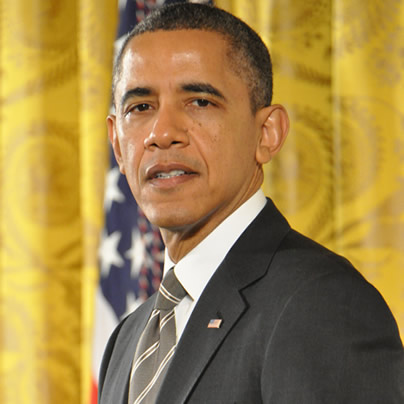
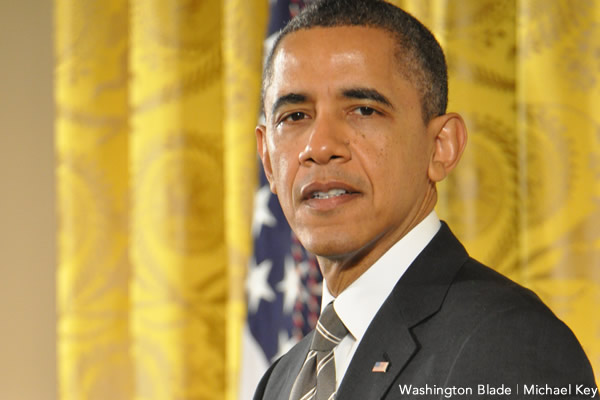
President Obama nominated a gay black judge to serve on federal court (Washington Blade file photo by Michael Key).
After his earlier attempt at appointing a gay black male judge to the federal bench was thwarted by Sen. Marco Rubio (R-Fla.), President Obama on Wednesday announced he’s making another effort with a different nominee in the same court.
Obama named Darrin Gayles, who currently serves as a Miami-Dade Circuit Judge in Florida, as part of a group of four nominees for a seat on the U.S. District Court for the Southern District of Florida.
“Throughout their careers, these distinguished men and women have demonstrated a steadfast commitment to public service,” Obama said in a statement. “I am confident they will serve the American people with distinction from the District Court bench.”
If confirmed by the Senate, Gayles would be the first gay black male to serve on the federal bench. (Deborah Batts, confirmed to the federal bench in 1994 and the first-ever out person to sit on the federal judiciary, is also black.)
Steven Thai, a spokesperson for the Gay & Lesbian Victory Institute, praised Obama for nominating Gayles.
“We commend the administration for nominating a qualified jurist who will also add diversity to the federal bench,” Thai said. “If confirmed, Judge Gayles will be the nation’s first black, openly gay federal judge, and he will reflect the talent and commitment that exists in communities that are underrepresented in public service.”
According to a White House bio, Gayles has served as a circuit judge in Florida state court since 2011. He was among the candidates endorsed by the Gay & Lesbian Victory Fund in 2012.
Before that, Gayles was a county judge since 2004. He’s also served as an assistant U.S. attorney for the Southern District of Florida, an assistant district counsel at the U.S. Immigration & Naturalization Service and an assistant state attorney.
Gayles received his law degree in 1993 from George Washington University Law School and his bachelor’s degree in 1990 from Howard University.
In November 2012, Obama made an attempt to appoint a gay black judge to the federal judiciary by naming Miami-Dade Circuit Judge William Thomas to federal court in Florida, but the nomination never even saw a hearing.
Rubio, who had initially recommended the Thomas nomination, refused to hand in his “blue slip” as one of his home-state senators to start the process of confirmation, objecting to Thomas’ temperament when presiding over two different cases.
Although lawyers involved in the case said he acted appropriately, Rubio refused to allow the nominee to proceed. At the start of the year, Obama didn’t include Thomas’ name among the 200 nominees that were renamed, and the White House said Thomas wouldn’t be named again.
In a statement, Rubio said he’s happy with each of the four judicial nominees that Obama named on Wednesday, which would include Gayles, but said he wished the White House would have acted in more bipartisan manner.
“I welcome today’s four nominations to the district courts in Florida,” Rubio said. “As I previously indicated to the president, I do not anticipate having an objection to moving forward on any of these nominations pending the outcome of the customary background check conducted on every nominee. I am disappointed, however that given the opportunity to fill four vacancies on the court, the White House has declined to nominate any of the Republican finalists jointly suggested by Sen. Nelson and myself.”
Alex Conant, a Rubio spokesperson, said Gayles was on a list of potential nominees that Rubio’s office told the White House would be acceptable.
Ryan Brown, a spokesperson for Sen. Bill Nelson (D-Fla.), said Gayles was among the potential nominees the Florida Democrat sent to the president.
Obama has also named Staci Michelle Yandle, a black lesbian, for a seat on the U.S. District Court for the Southern District of Illinois. Her nomination is pending before the Senate Judiciary Committee.
D’Arcy Kemnitz, president of the LGBT Bar Association, said Gayles’ nomination “deserves prompt consideration” by the Senate.
“Darrin Gayles is admired and well-respected throughout the profession,” Kemnitz said. “Our judiciary should never be politicized, and any attempt to delay or derail his nomination because of animus or discriminatory political views would be unacceptable.”
Politics
Survey finds support for Biden among LGBTQ adults persists despite misgivings
Data for Progress previewed the results exclusively with the Blade

A new survey by Data for Progress found LGBTQ adults overwhelmingly favor President Joe Biden and Democrats over his 2024 rival former President Donald Trump and Republicans, but responses to other questions may signal potential headwinds for Biden’s reelection campaign.
The organization shared the findings of its poll, which included 873 respondents from across the country including an oversample of transgender adults, exclusively with the Washington Blade on Thursday.
Despite the clear margin of support for the president, with only 22 percent of respondents reporting that they have a very favorable or somewhat favorable opinion of Trump, answers were more mixed when it came to assessments of Biden’s performance over the past four years and his party’s record of protecting queer and trans Americans.
Forty-five percent of respondents said the Biden-Harris administration has performed better than they expected, while 47 percent said the administration’s record has been worse than they anticipated. A greater margin of trans adults in the survey — 52 vs. 37 percent — said their expectations were not met.
Seventy precent of all LGBTQ respondents and 81 percent of those who identify as trans said the Democratic Party should be doing more for queer and trans folks, while just 24 percent of all survey participants and 17 percent of trans participants agreed the party is already doing enough.
With respect to the issues respondents care about the most when deciding between the candidates on their ballots, LGBTQ issues were second only to the economy, eclipsing other considerations like abortion and threats to democracy.
These answers may reflect heightened fear and anxiety among LGBTQ adults as a consequence of the dramatic uptick over the past few years in rhetorical, legislative, and violent bias-motivated attacks against the community, especially targeting queer and trans folks.
The survey found that while LGBTQ adults are highly motivated to vote in November, there are signs of ennui. For example, enthusiasm was substantially lower among those aged 18 to 24 and 25 to 39 compared with adults 40 and older. And a plurality of younger LGBTQ respondents said they believe that neither of the country’s two major political parties care about them.
European Union
Activists demand EU sanction Uganda over Anti-Homosexuality Act
Yoweri Museveni signed law on May 29, 2023
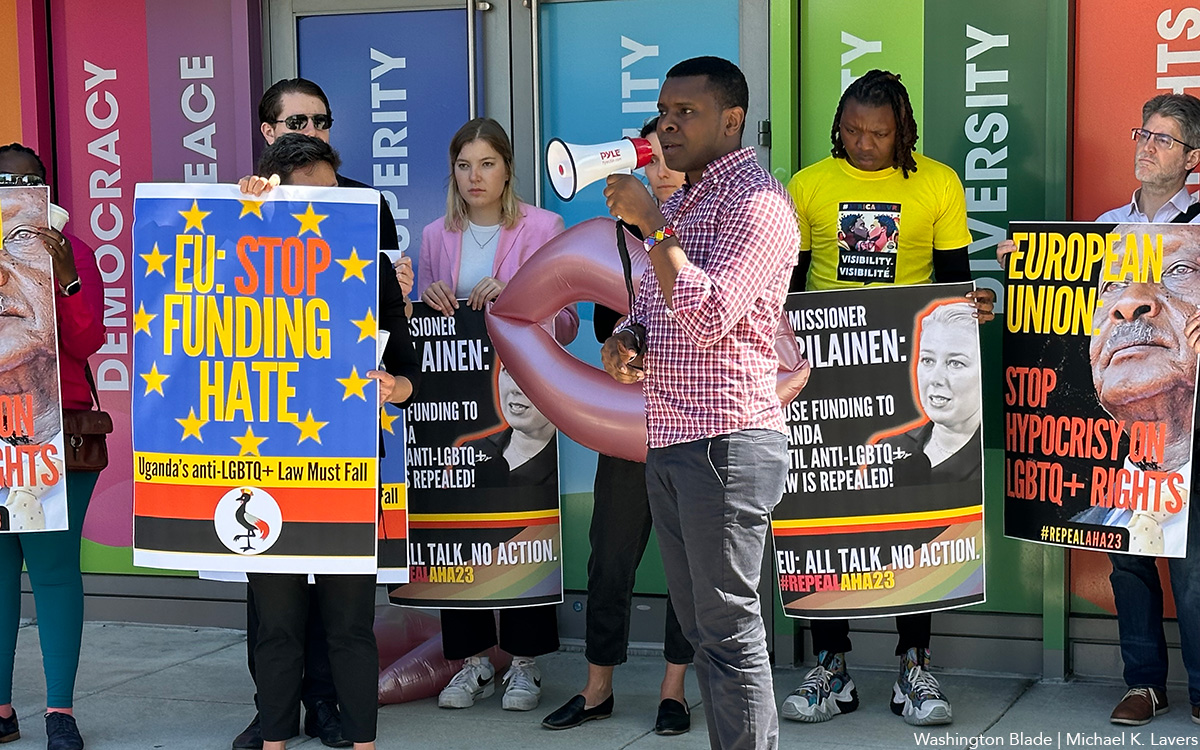
More than a dozen activists who protested in front of the European Union Delegation to the United States in D.C. on Thursday demanded the EU to sanction Uganda over the country’s Anti-Homosexuality Act.
Hillary Innocent Taylor Seguya, a Ugandan LGBTQ activist, and Global Black Gay Men Connect Executive Director Micheal Ighodaro are among those who spoke at the protest. Health GAP Executive Director Asia Russell also participated in the event that her organization organized along with GBGMC and Convening for Equality Uganda, a Ugandan LGBTQ rights group.
Ugandan President Yoweri Museveni last May signed the Anti-Homosexuality Act that, among other things, contains a death penalty provision for “aggravated homosexuality.”
The country’s Constitutional Court on April 3 refused to “nullify the Anti-Homosexuality Act in its totality.” A group of Ugandan LGBTQ activists have appealed the ruling.
A press release that Health GAP issued ahead of Thursday’s protest notes EU Commissioner for International Partnerships Jutta Urpilainen on March 6 announced more than €200 million ($212.87 million) for Uganda in support of “small business owners, young female entrepreneurs, agribusinesses as well as vital digital infrastructure projects in full Team Europe format with the European Investment Bank (EIB) and several member states.”
“These concrete initiatives will make a difference to aspiring entrepreneurs, Ugandan businesses and create jobs in multiple sectors,” said Urpilainen in a press release that announced the funds. “This is a perfect example of how Global Gateway can make a tangible difference for citizens and businesses and unlock the full potential of a partner country by working together.”
Convening for Equality Uganda on Tuesday in a letter they sent to Urpilainen asked the EU to review all funding to Uganda and “pause or reprogram any funds that go via government entities.” The protesters on Thursday also demanded European Commission President Ursula von der Leyen “to hold Ugandan President Museveni’s government accountable for this attack on human rights.”
Josep Borrell, the EU’s top diplomat, in a statement he released after Museveni signed the Anti-Homosexuality Act said the law “is contrary to international human rights law and to Uganda’s obligations under the African Charter on Human and People’s Rights, including commitments on dignity and nondiscrimination, and the prohibition of cruel, inhuman or degrading punishment.”
“The Ugandan government has an obligation to protect all of its citizens and uphold their basic rights,” said Borrell. “Failure to do so will undermine relationships with international partners.”
“The European Union will continue to engage with the Ugandan authorities and civil society to ensure that all individuals, regardless of their sexual orientation and gender identity, are treated equally, with dignity and respect,” he added.
Urpilainen last September in a letter to the European Parliament said the EU would not suspend aid to Uganda over the law.
Politics
Court records raise concerns about right-wing TikTok investor’s influence
Jeff Yass is a Pa. billionaire who has funded anti-LGBTQ causes

The role played by Pennsylvania billionaire Jeff Yass in the creation of TikTok might be far greater than was previously understood, according to new reporting that raises questions about the extent of the right-wing megadonor’s influence over matters at the intersection of social media, federal regulations, and electoral politics.
In 2012, Yass’s firm, Susquehanna International Group, spent $5 million for 15 percent of the short-form video hosting platform’s Chinese-owned parent, ByteDance. In the years since, as TikTok grew from a nascent startup to a tech giant with 1.5 billion active monthly users and an estimated $225 billion valuation, Yass and his firm pocketed tens of billions of dollars.
Beyond the size of Susquehanna’s ownership stake, little was known about its relationship with ByteDance until documents from a lawsuit filed against the firm by its former contractors were accidentally unsealed last month, leading to new reporting by the New York Times on Thursday that shows Susquehanna was hardly a passive investor.
In 2009 the firm used a proprietary, sophisticated search algorithm to build a home-buying site called 99Fang, tapping software engineer and entrepreneur Zhang Yiming to serve as its CEO. The company folded. And then, per the Times’s review of the court records, in 2012 Susquehanna picked Yiming to be the founder of its new startup ByteDance and repurposed the technology from 99Fang for use in the new venture.
Importantly, the documents do not provide insight into Yass’s personal involvement in the formation of ByteDance. And Susquehanna denies that the company’s search algorithm technologies were carried over from the real estate venture — which, if true, would presumably undermine the basis for the lawsuit brought by the firm’s former contractors who are seeking compensation for the tech used by ByteDance.
Questions about Yass’s influence come at a pivotal political moment
In recent weeks, federal lawmakers have moved forward with a proposal that would force ByteDance to divest TikTok or ban the platform’s use in the U.S. altogether, citing the potential threats to U.S. national security interests stemming from the company’s Chinese ownership.
The bill was passed on March 13 with wide bipartisan margins in the House but faced an uncertain future in the Senate. However, on Wednesday, House Speaker Mike Johnson (R-La.) announced plans to fold the proposal into a measure that includes foreign aid to Ukraine, Israel, and Taiwan, likely bolstering its chances of passage by both chambers.
Last month, shortly after meeting with Yass at his home in Mar-a-Lago, former President Donald Trump changed his longtime stance and came out against Congress’s effort to break up or ban TikTok. The timing led to speculation about whether the billionaire businessman was behind Trump’s change of heart, perhaps by contributing to the cash-strapped Republican presidential nominee’s electoral campaign or through other means.
Meanwhile, Yass has emerged as the largest donor of the 2024 election cycle. A coalition of public interest and government watchdog groups have called attention to the vast network of right-wing political causes and candidates supported by the billionaire, often via contributions funneled through dark money PACs that are designed to conceal or obscure the identities of their donors.
The Action Center on Race and the Economy, Make the Road, POWER Metro: Faith in Action, Free the Ballot, and Little Sis launched a website called All Eyes on Yass that features research into the various causes he supports, along with insight into the networks connecting the entities funded by his contributions.
Broadly, in Pennsylvania they fall into five categories: Advocacy against reproductive freedom and LGBTQ rights via the Pennsylvania Family Institute, lobbying on behalf of oil and gas industry interests by the Pennsylvania Manufacturers’ Association, anti-union groups supported by Commonwealth Partners, a privately owned registered investment advisory firm/independent broker-dealer, the Commonwealth Foundation for Public Policy Alternatives, which seeks to privatize public schools and defeat proposed increases to the minimum wage, and the Citizens Alliance of Pennsylvania, which advocates for lowering taxes on corporations and the rich.
Additionally, All Eyes on Yass reports that the billionaire has given massive contributions to Club for Growth and direct spending to support the electoral campaigns of right-wing Republicans including Florida Gov. Ron DeSantis; U.S. Sens. Ted Cruz (Texas), Rand Paul (Ky.), and Josh Hawley (MO); U.S. Rep. Lauren Boebert (Colo.), and former U.S. Rep. Madison Cawthorn (N.C.).
-

 Africa4 days ago
Africa4 days agoCongolese lawmaker introduces anti-homosexuality bill
-

 District of Columbia18 hours ago
District of Columbia18 hours agoReenactment of first gay rights picket at White House draws interest of tourists
-

 World4 days ago
World4 days agoOut in the World: LGBTQ news from Europe and Asia
-

 Arizona22 hours ago
Arizona22 hours agoAriz. governor vetoes anti-transgender, Ten Commandments bill

